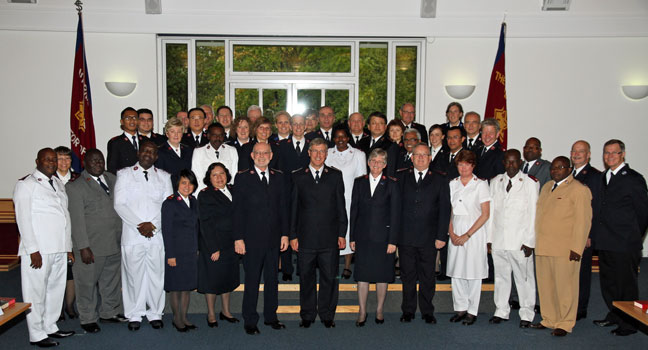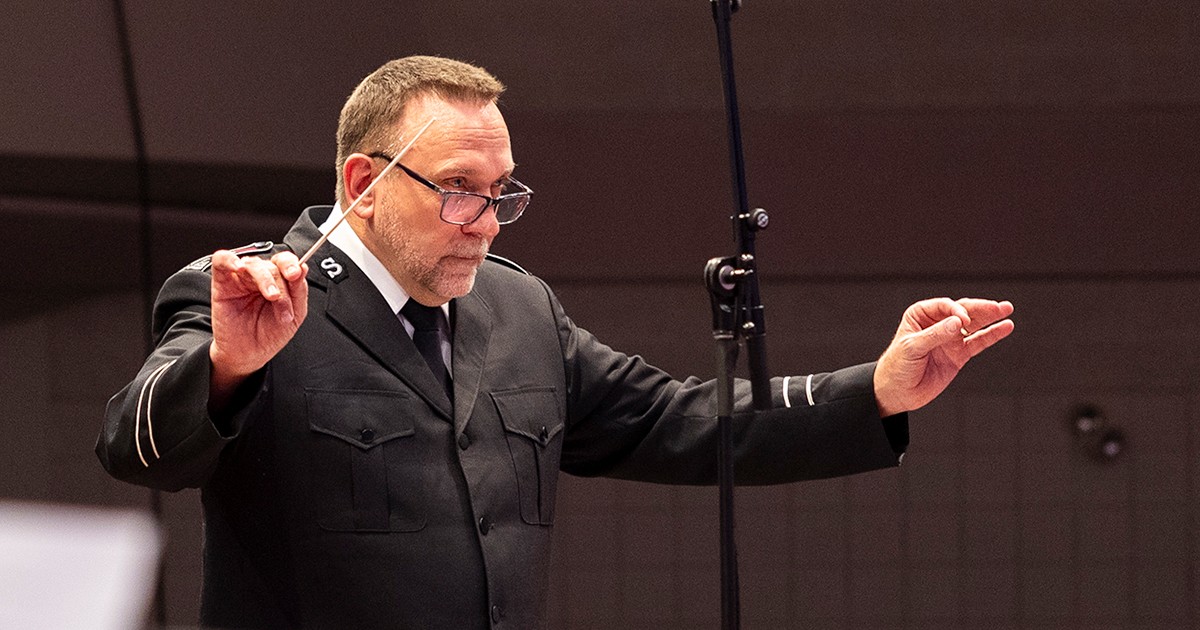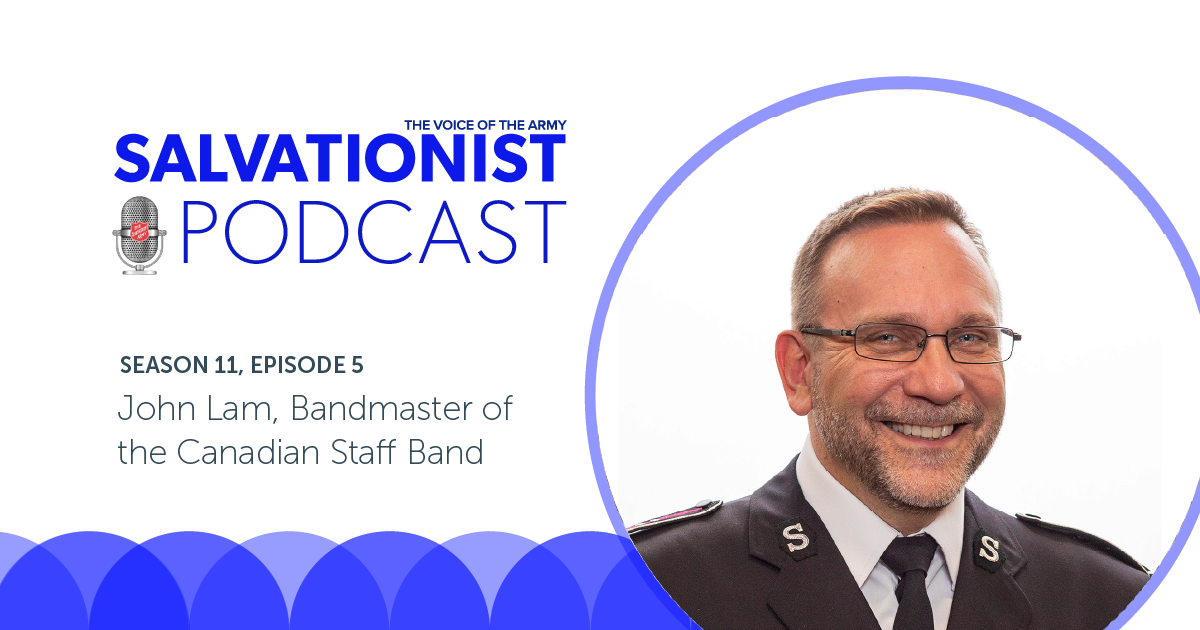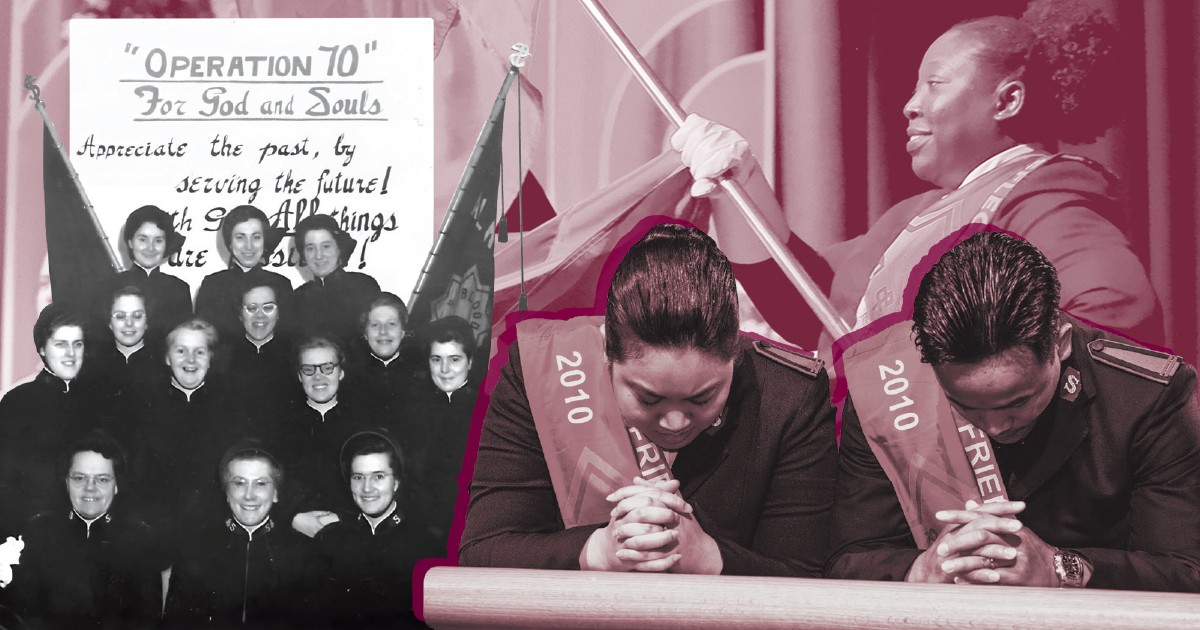The mid-point of the five-day 2014 International Theology and Ethics Symposium, based at Sunbury Court near London, England, contained two formal papers, an afternoon trip and an evening of music and song.
Delegates continued to present and discuss papers on subjects related to the overall theme of the symposium, "Jesus – Universal Lord and Saviour." Miriam Kjellgren, a soldier from Sweden serving in Norway, presented a paper on universalism, entitled "Will All Be Saved?" Drawing the distinctions between exclusivism, universalism and inclusivism as related to the doctrine of Hell, Miriam stated: "If anybody [knows], The Salvation Army knows that hell is a reality in which many people live today. The Army's mission is to serve a suffering world by following Christ into this world and into every hell in it, to preach the good news without boundaries." Universalism is a subject of vigorous debate in evangelical circles these days, and the dialogue in the conference room was no less energising and engaging.
Commissioner Robert Street (Chair, International Doctrine Council) brought the morning to a close with his paper "Servant Lord." "Salvationists are saved to share the grace of God with others," he said, "to serve them by every good means at their disposal. Salvation Army songs have reflected the spirit of service in every generation. They have placed service at the heart of who we are. Without service we lose one of our defining qualities – and our credibility."
Delegates spent the afternoon touring nearby Hampton Court, or visiting International Headquarters in central London, where the Chief of the Staff, Commissioner William Roberts, hosted the visitors in his office.
A memorable Friday evening was spent with the visiting band and songsters from nearby Staines Corps in a "Let's Sing About Jesus" program. A varied and flowing festival of song, musical performances and video presentations culminated with the songster classic A Song Of Praise – Catherine Baird's words arranged by Leslie Condon, with its triumphant concluding phrase: "Christ has overcome the world."
Day four opened with the presentation of a paper entitled "All Things Under His Feet?" a study on the breadth of the Lordship of Christ by Lt-Colonel Wendy Swan, a Canadian officer currently serving in Hong Kong. The paper used the repeated biblical image of all things being "under the feet" of Jesus. The colonel proposed that this includes the realm of political power, saying, "A Salvationist politic of protest … must always speak for those who cannot speak for themselves. This is a fundamental part of our embodiment in Christ: we speak for the other, or more properly, we allow the marginalized, impoverished or oppressed to find voice through us."
Major Dean Hinton, USA Southern, continued the theme of the scope of salvation with another question: "From What to What?" His emphasis was on salvation expressing "good works." He told delegates: "William Booth caught the vision of what we are 'saved to' by reaching out in love to a lost and hurting world. This is what Jesus meant by saying we are to be salt and light in the world. The societal aspect of The Salvation Army's ministry is not something pasted onto our mission but is the outcome of the saving and sanctifying work of Jesus Christ."
The final paper of the series – shared by Major Geoff Webb, Australia Southern – was succinctly entitled "Christ Alone." The major addressed the essentially exclusive claims of the gospel embodied in Christ. His conclusion affirmed: "A robust understanding of the uniqueness of Jesus Christ as mediator of our salvation will be necessary for The Salvation Army as it responds to the complex reality of the world in which we live out God's mission – 'the whole world redeeming.' "
Small groups later reviewed and assessed what delegates perceived to be the major challenges to proclaiming Jesus as "Universal Lord and Saviour" in their home territories. These ranged from cultures of indifference, to ones of extreme hostility. Each group then presented one issue, outlining its importance and offering suggestions for a practical response. These were collected together in a concluding plenary session.
The symposium concluded with Sunday worship. Song, personal testimony, small group prayer and Commissioner Robert Street's message of the morning – applying the apostle Peter's response to "come, follow" Jesus – all combined to bring the week before God. The mercy seat – in the room used for worship by delegates to the International College for Officers – was lined with symposium delegates, some praying together as colleagues in Christ.
The final anthem of the symposium was My Jesus, I Love Thee, I Know Thou art Mine. The last repeated line of each verse seemed especially applicable: "If ever I loved thee, my Jesus, 'tis now."
For more information, and to read the keynote speech and symposium papers in full, go to sar.my/doctrine
More photos are available on the IHQ Flickr stream: sar.my/tes2014
Delegates continued to present and discuss papers on subjects related to the overall theme of the symposium, "Jesus – Universal Lord and Saviour." Miriam Kjellgren, a soldier from Sweden serving in Norway, presented a paper on universalism, entitled "Will All Be Saved?" Drawing the distinctions between exclusivism, universalism and inclusivism as related to the doctrine of Hell, Miriam stated: "If anybody [knows], The Salvation Army knows that hell is a reality in which many people live today. The Army's mission is to serve a suffering world by following Christ into this world and into every hell in it, to preach the good news without boundaries." Universalism is a subject of vigorous debate in evangelical circles these days, and the dialogue in the conference room was no less energising and engaging.
Commissioner Robert Street (Chair, International Doctrine Council) brought the morning to a close with his paper "Servant Lord." "Salvationists are saved to share the grace of God with others," he said, "to serve them by every good means at their disposal. Salvation Army songs have reflected the spirit of service in every generation. They have placed service at the heart of who we are. Without service we lose one of our defining qualities – and our credibility."
Delegates spent the afternoon touring nearby Hampton Court, or visiting International Headquarters in central London, where the Chief of the Staff, Commissioner William Roberts, hosted the visitors in his office.
A memorable Friday evening was spent with the visiting band and songsters from nearby Staines Corps in a "Let's Sing About Jesus" program. A varied and flowing festival of song, musical performances and video presentations culminated with the songster classic A Song Of Praise – Catherine Baird's words arranged by Leslie Condon, with its triumphant concluding phrase: "Christ has overcome the world."
Day four opened with the presentation of a paper entitled "All Things Under His Feet?" a study on the breadth of the Lordship of Christ by Lt-Colonel Wendy Swan, a Canadian officer currently serving in Hong Kong. The paper used the repeated biblical image of all things being "under the feet" of Jesus. The colonel proposed that this includes the realm of political power, saying, "A Salvationist politic of protest … must always speak for those who cannot speak for themselves. This is a fundamental part of our embodiment in Christ: we speak for the other, or more properly, we allow the marginalized, impoverished or oppressed to find voice through us."
Major Dean Hinton, USA Southern, continued the theme of the scope of salvation with another question: "From What to What?" His emphasis was on salvation expressing "good works." He told delegates: "William Booth caught the vision of what we are 'saved to' by reaching out in love to a lost and hurting world. This is what Jesus meant by saying we are to be salt and light in the world. The societal aspect of The Salvation Army's ministry is not something pasted onto our mission but is the outcome of the saving and sanctifying work of Jesus Christ."
The final paper of the series – shared by Major Geoff Webb, Australia Southern – was succinctly entitled "Christ Alone." The major addressed the essentially exclusive claims of the gospel embodied in Christ. His conclusion affirmed: "A robust understanding of the uniqueness of Jesus Christ as mediator of our salvation will be necessary for The Salvation Army as it responds to the complex reality of the world in which we live out God's mission – 'the whole world redeeming.' "
Small groups later reviewed and assessed what delegates perceived to be the major challenges to proclaiming Jesus as "Universal Lord and Saviour" in their home territories. These ranged from cultures of indifference, to ones of extreme hostility. Each group then presented one issue, outlining its importance and offering suggestions for a practical response. These were collected together in a concluding plenary session.
The symposium concluded with Sunday worship. Song, personal testimony, small group prayer and Commissioner Robert Street's message of the morning – applying the apostle Peter's response to "come, follow" Jesus – all combined to bring the week before God. The mercy seat – in the room used for worship by delegates to the International College for Officers – was lined with symposium delegates, some praying together as colleagues in Christ.
The final anthem of the symposium was My Jesus, I Love Thee, I Know Thou art Mine. The last repeated line of each verse seemed especially applicable: "If ever I loved thee, my Jesus, 'tis now."
For more information, and to read the keynote speech and symposium papers in full, go to sar.my/doctrine
More photos are available on the IHQ Flickr stream: sar.my/tes2014










Leave a Comment